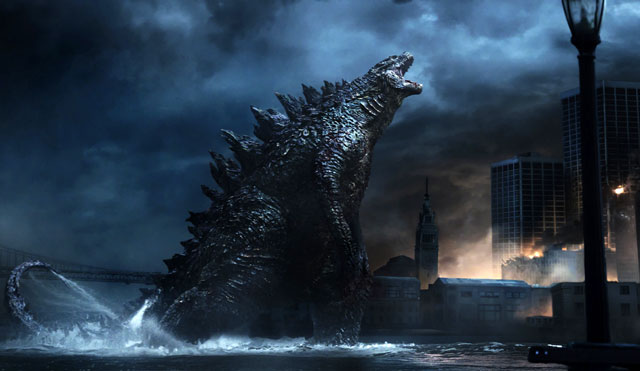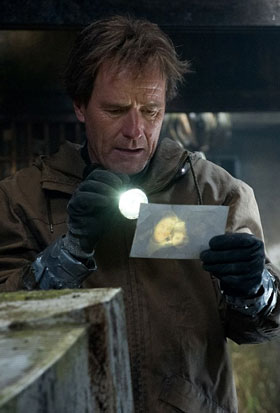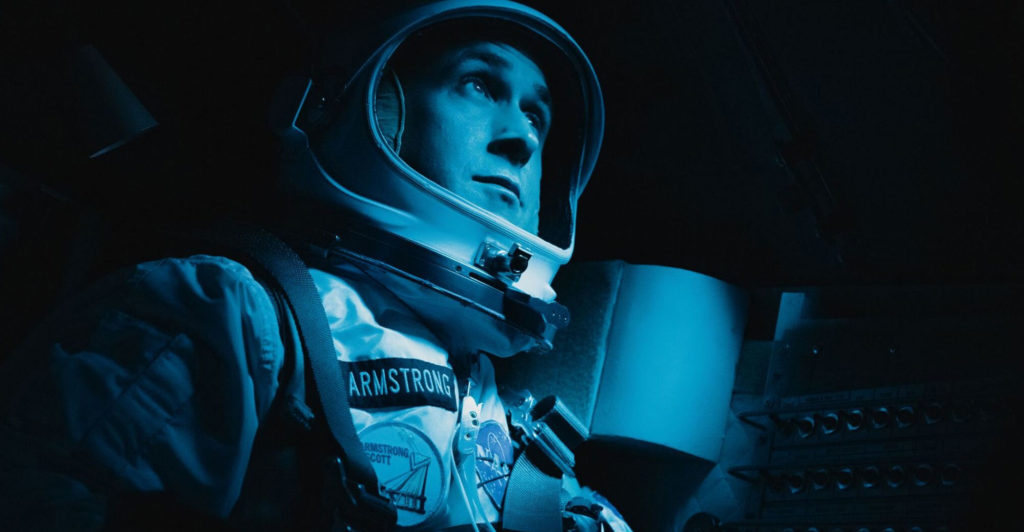
In the 2014 reboot of Godzilla, the venerable giant lizard battles mutos (or Massive Unidentified Terrestrial Organisms) while the script’s somber tone wages war with the ridiculousness of its underlying premise. In both clashes, the human characters seem to be there mostly as spectators who run, scream and open their eyes in widened terror as rampaging monsters tear some of the world’s great cities to pieces.
Where last year’s Pacific Rim — director Guillermo del Toro’s affectionate tribute to kaiju films like Godzilla — was a confident explosion of colour, joy and energy, Godzilla is a rather solemn and muddled affair. Yet Godzilla features strong enough special effects and a rousing, action-packed second half to make up for a dreary, sagging mid-section.
Godzilla is directed by British filmmaker Gareth Edwards, who was responsible for the well-regarded, shoestring creature feature Monsters. In addition to his obvious love of Toho Studios’ classic monsters, Edwards takes inspiration from Steven Spielberg classics such as Jaws and Jurassic Park. Yet as hard as Edwards tries, he doesn’t have quite as firm a handle on his characters as Spielberg does at his best.

Godzilla’s main human characters are father and son, Joe (Bryan Cranston) and Ford (Aaron Taylor-Johnson) Brody, survivors of a power plant catastrophe in Japan. Fast-forward 15 years, and Joe’s obsession with uncovering the true cause of the disaster — he doesn’t buy the official line of an earthquake — has estranged him from Ford.
The father-son plotline is taken straight from Spielberg’s book, and Edwards is refreshingly willing to let this human aspect of the story breathe for the first half of the film before taking the monsters of the leash. But the human drama is never as compelling as it should be, because the characters lack both charm and agency. A cliché-ridden script with little wit or warmth doesn’t help either.
Edwards sidelines the always engaging Cranston — in fine form here as the crabby engineer to whom no one will listen — in favour of Taylor-Johnson for much of the film. Taylor-Johnson makes Taylor Kitsch look like a screen commanding presence; he’s a 20-something buzz-cut side of beef who appears to find found his way into the film from a chest-beating, oorah-grunting military videogame.
As for the rest of the cast, they’re stock disaster movie types. Elizabeth Olsen, who has turned in some stellar performances in low-key indie films in the past couple years, is given little to do besides look concerned on the other end of a telephone line when hubby Joe calls. Ken Watanabe and Sally Hawkins are similarly underused as two scientists tracking the monsters, the former there to offer inanities about man and nature and the latter as an expositional mouthpiece.
But this is a film about Godzilla, here an embodiment of natural fury and grandeur whose shadow is cast across every frame. When he makes his entrance about halfway through, he rescues the picture from mediocrity. At first, we catch just glimpses of the creature — scales beneath the waves, a tail swirling through smoke and mist — then we see the scale of Godzilla. He deserves to be called the king of the monsters — a primordial predator with a window-rattling roar and a bulk that makes the earth tremor.
Watch the trailer (via YouTube):
Godzilla’s battles with the mutos are visceral and primal, making for some breathtaking set pieces, often set up with a slow and masterful build-up of tension. Amid the carnage, Edwards finds images that are haunting and apocalyptic — a man in parachute drifting to earth, followed by fighter jets tumbling from the sky; plumes of red smoke trailing soldiers Halo-jumping from high above the earth; a nuclear sub perched on a tree.
Just don’t try to make sense of it when it’s all over. Godzilla — mindful of the nuclear war parable underlying the original Japanese creation — is desperate to be about something, but it’s not sure what that is exactly. There’s some sort of allegory here about man and nature and nuclear power and natural disasters, but the more you think about it, the less the seriousness adds up any sort of substance. — © 2014 NewsCentral Media




